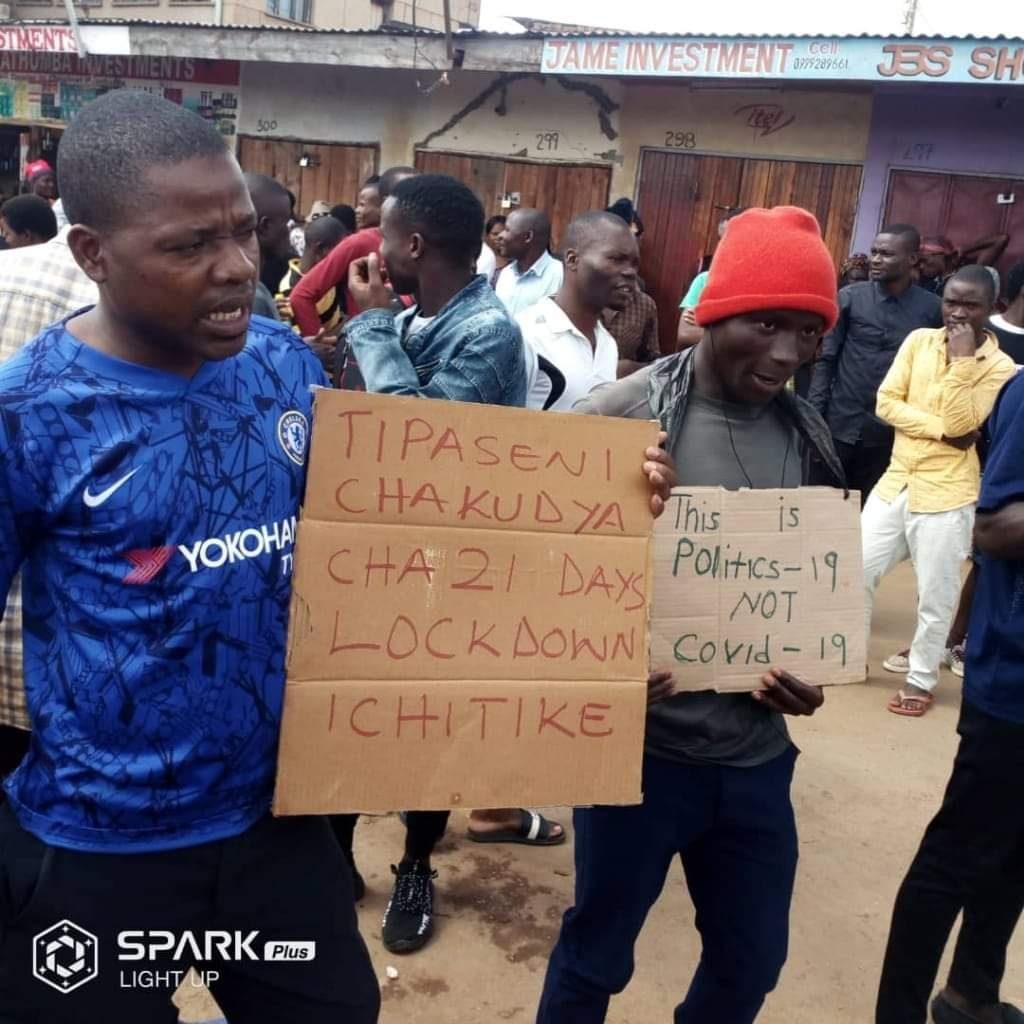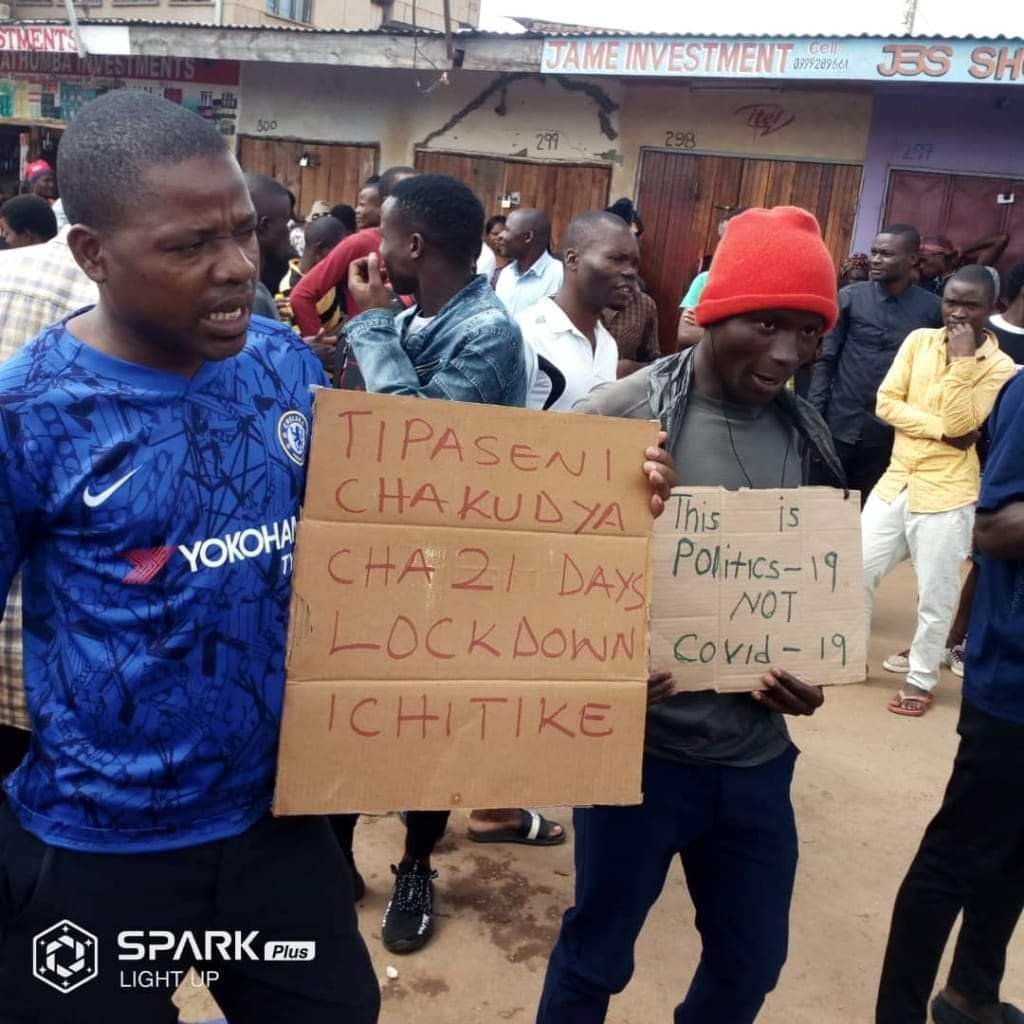A Malawi high court has temporarily barred the government from implementing a 21-day lockdown to curb coronavirus following a petition by a human rights group.
Justice Kenyatta Nyirenda on Friday set aside the lockdown in response to a challenge by the Malawi Human Rights Defenders Coalition (HRDC), which argued that more consultation was needed to prevent harm to the poorest and most vulnerable of society.
Small-scale traders, often young people, had been staging protests in the three major cities against the planned lockdown, initially due to begin on Saturday, carrying placards declaring that it would be better to contract the virus than die of hunger because they are unable to work.
Most of those protesting called on the government to provide them with cash and food handouts if a lockdown went ahead.
The HDRC chairman, Gift Trapence, said the court had granted them temporary relief pending a judicial review in seven days.
“Yes, we have been granted the injunction,” he told AFP news agency. “So, what it means is that there is no lockdown for the next seven days.”

Presidential Press Secretary Mgeme Kalilani told the Reuters news agency that President Peter Mutharika’s office had noted the judgment and continued to see the lockdown as the way to save lives by minimising further spread of the coronavirus.
“Since the injunction obtained is a temporary relief pending judicial review, our expectation is that our civil, society and the courts will be guided by the law and what is in the best interest of Malawians when the matter finally comes for a hearing and determination, and nothing else,” Kalilani said.
“We can only hope that by the time the HRDC and the courts finalise dealing with the matter in court, it shall not be too late for all of us to effectively contain the spread of the virus and save lives.”
Malawi on Tuesday had joined other countries in announcing a three-week lockdown, with Mutharika saying if authorities were not careful, up to 50,000 lives could be lost.
All non-essential businesses and services were to cease operating during the lockdown, which was due to end on May 9.
Nyirenda’s ruling ran parallel to that of Health Minister Jappie Mhango, who announced at a briefing that the number of coronavirus cases had risen to 17 from 16. The latest case is of a 70-year old Blantyre businessman of Asian origin.
While African countries have far fewer confirmed cases of COVID-19 than other nations in the world, they have little testing capacity and most people have scant access to modern healthcare, meaning the risk of major virus outbreaks is high.
Mhango, who chairs Malawi’s cabinet committee overseeing its response to the pandemic, said three of the 17 coronavirus patients were recovering and could soon be declared cured



